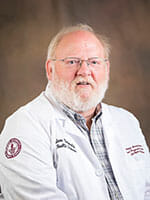Longitudinal Chronic Care Course (LC3)
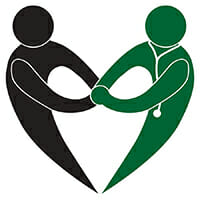
On the Pomona campus, the LC3 experience begins with the pairing of a patient being evaluated in the Western Diabetes Institute with a health professions student. This pairing is designed to promote a partnership to last for the entire four years of the student’s undergraduate professional education. Students function as an essential part of the patient’s core care team, to help serve as health coaches and to more deeply understand the myriad challenges posed by chronic disease. Students are expected to engage their paired patient in every aspect of their lives. This longitudinal engagement aids the patient with improved medication adherence and lifestyle changes and enhances the student’s understanding of the patient’s real world and how one lives with chronic disease and pursues a state of wellness.
LC3 consists of monthly meetings for training in cultural awareness; healthy patient communication skills; social factors affecting patients; protected health information; and research. Students existentially learn the importance of healthy living and how nutrition and exercise are essential components. The skills that students gain during this course will be sustainable and invaluable.
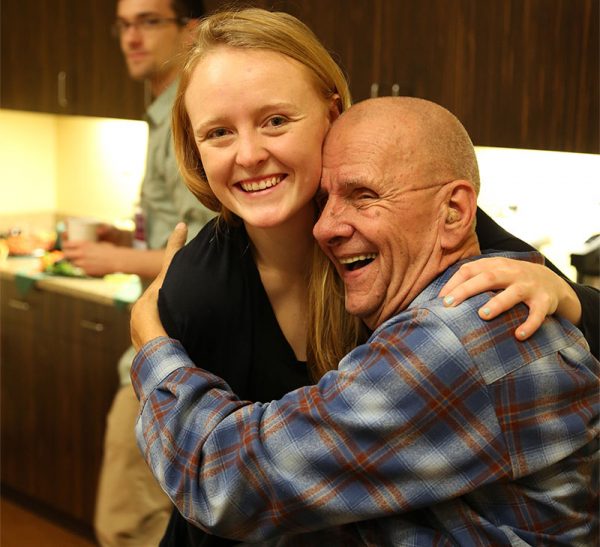
LC3
It is essential that we prepare our students to one day provide “21st century health care”. We have partnered with the Western Diabetes Institute’s integrated practice unit (IPU) that provides an ideal setting for students to learn the skills that will be necessary for them to deliver high-value care to people with diabetes and other chronic diseases on the Pomona campus. We have also partnered with the Veterans Home on the Lebanon campus. There are essential competencies in which students need to become proficient. Students need real-life experiences that prepare them to provide whole-person care; arrange care with other professionals; integrate technology into the care of their patients; measure clinical outcomes; and how to manage patients with chronic conditions across the total care cycle, including acute care, disease prevention, and end-of-life. These immersion experiences provide training in professionalism, accountability and empathy. Here’s what our students learn!
Professionalism
- Promotion of patient self-efficacy
- Accountability of team members
- Promotion of health and wellbeing
- Use of community resources
Communication
- Effective transitions of care
- Collaborative care
- Co-management over time
- Phone medicine
Interpersonal Skills
- Team building
- Conflict management
- Collaborative care
- Demonstrating respect
- Group visits
- Shared decision making
Practice Based Learning
- Registry use
- Population health
- Assessment health literacy
System Based Practice
- Electronic communications
- EMRs/HIT at point of care
- Use of online resources and patient education information
Patient Care
- Life cycle appreciation
- Empathy
- Home visits
- Patient engagement
- Respect for cultural values
- Patient advocacy
- Family involvement
Student Experiences
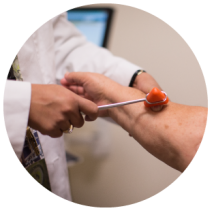
Kelly Law
I’m really grateful to be part of LC3. The kind of experience I’m getting is something that not a lot of first years will have unless your in the program. It gives me a sense of direction and a responsibility that I know I will be able to continue throughout the program. As a first year it’s one of the best things I could do is apply for the LC3 program. The patients all have a lot of different personalities and sometimes it’s difficult, but I’m always leaving feeling accomplished that I’ve done something. I feel good about myself too knowing that I was able to help.

Elysia Chin
This program teaches you something that can never be taught in a classroom. And that’s how to interact with somebody on a deeper level so that you can motivate them in a health sort of way. But it’s really about how do you develop an interpersonal relationship? How do you really have true empathy? Everyone always throws out that word empathy, compassion. But what does that all really mean? It takes time. It takes effort to develop those things with a patient. I think that’s what Sheryl taught me.
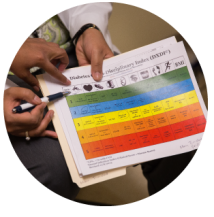
Kenny Chang
Getting to know my patient personally has actually been one of the best experiences from this program. I remember when we first met, just a few months after he invited me to go see his grandchildren’s birthday parties. And it was amazing to see all of his family and to see how much they appreciated the help I was giving him. To be able to celebrate with patients at their good times and to be there for them when they’re in the hospital, it means a lot. Being able to be there for their good times and bad.
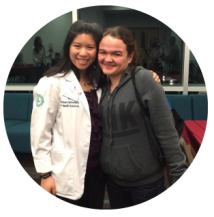
Whay Cheng
My LC3 patient turns to her two friends and says, “I can’t believe she’s mine for the next 4 years! Can you believe it? She’s mine!” That’s when it hit me that a lot of our future patients just want to know that someone out there genuinely cares about them.
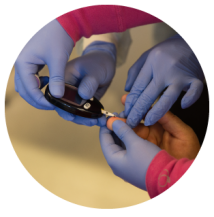
Maureen Nwaokoro
There are bigger things in life. It gives you that perspective to just relax and be grateful and just to be grateful for what you have and just continue to strive to learn the material and to understand the material so you can continue to help people and patients. So you’re actually seeing the people you’re going to help down the line and that encourages me to continue to learn more and understand the information very well.
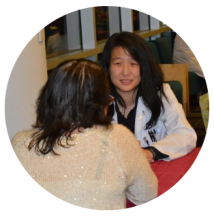
Janet Lee
What struck me when I first met my LC3 patient is how similar we both were. Both of us were highly ambitious Asian American women in our mid-twenties and self-professed science geeks…. I really did not expect to be so emotionally involved with a patient, but I think seeing someone like me in many ways, but living a completely different life, really shook me.
 Longitudinal Chronic Care Course (LC3)
Longitudinal Chronic Care Course (LC3)
Pomona Campus:

Edward V. Barnes, II, MD, FACP
Vice Dean, College Affairs, Associate Professor of Internal Medicine, Chief, Division of Nephrology & Hypertension
Lebanon Campus:
